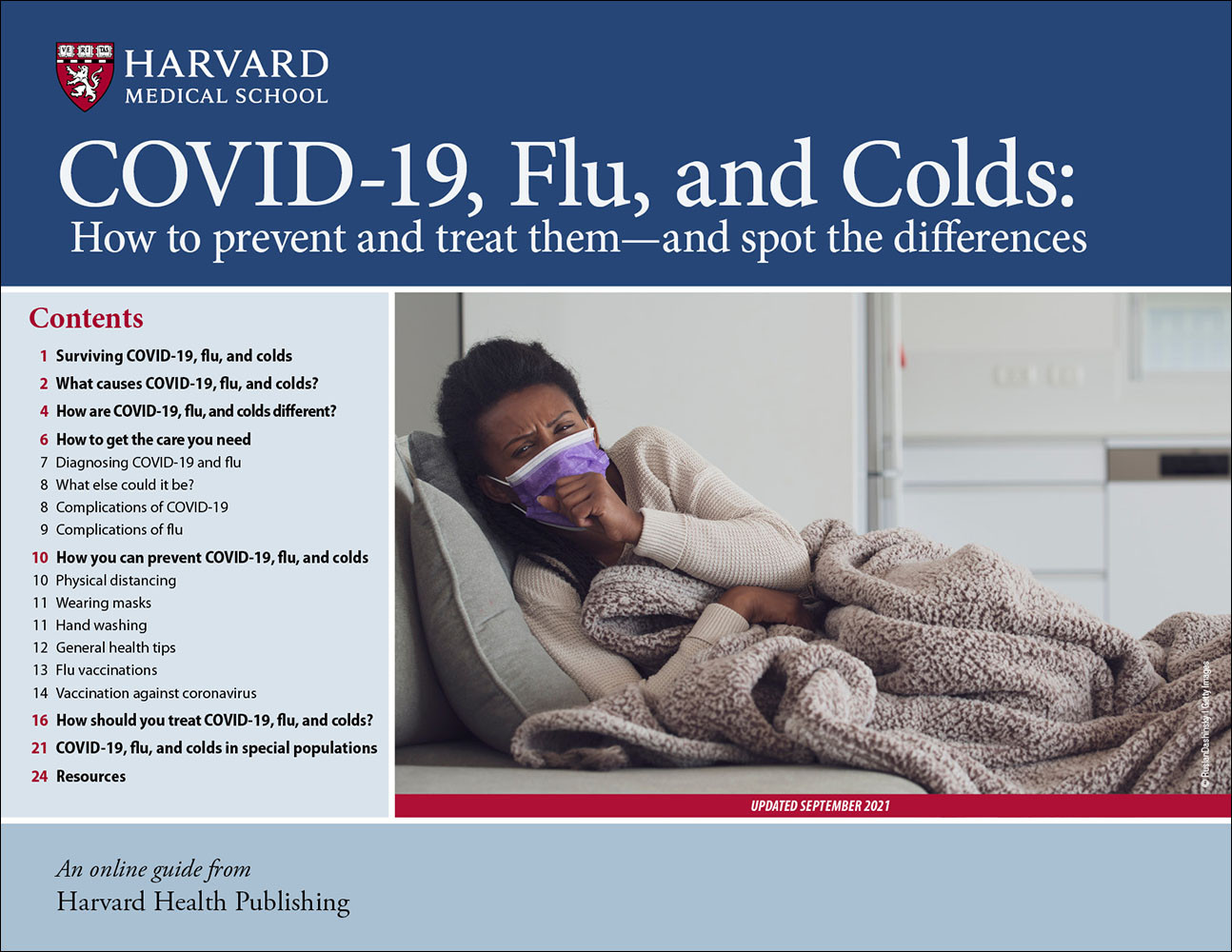Harvard study: Healthy diet associated with lower COVID-19 risk and severity
News briefs

Here’s more incentive to eat a healthy diet: it’s associated with a reduced risk of developing COVID-19 and its serious complications, according to a study published online Sept. 6, 2021, by the journal Gut. Researchers asked about 593,000 adults (mostly middle-aged and older) what they ate in February 2020, and then followed their health through September. Scientists found that people who reported eating the most fruits, vegetables, and legumes had a 9% lower risk of getting COVID and a 41% lower risk of developing severe COVID during the study period, compared with people who reported eating the least fruits and vegetables. Researchers also found a link between COVID and a poor diet or socioeconomic disadvantages. "If you could remove just one of those factors — diet or disadvantage — we think nearly a third of the COVID-19 cases could have been prevented," notes Jordi Merino, the study’s lead author and a research associate at the Diabetes Unit and Center for Genomic Medicine at Harvard-affiliated Massachusetts General Hospital. The study was observational and doesn’t prove conclusively that a healthy diet prevents COVID. Researchers point out that getting vaccinated and wearing a mask in indoor settings are still the most important approaches to ward off the disease.
Image: © fcafotodigital/Getty ImagesAbout the Author

Heidi Godman, Executive Editor, Harvard Health Letter
Disclaimer:
As a service to our readers, Harvard Health Publishing provides access to our library of archived content. Please note the date of last review or update on all articles.
No content on this site, regardless of date, should ever be used as a substitute for direct medical advice from your doctor or other qualified clinician.
















